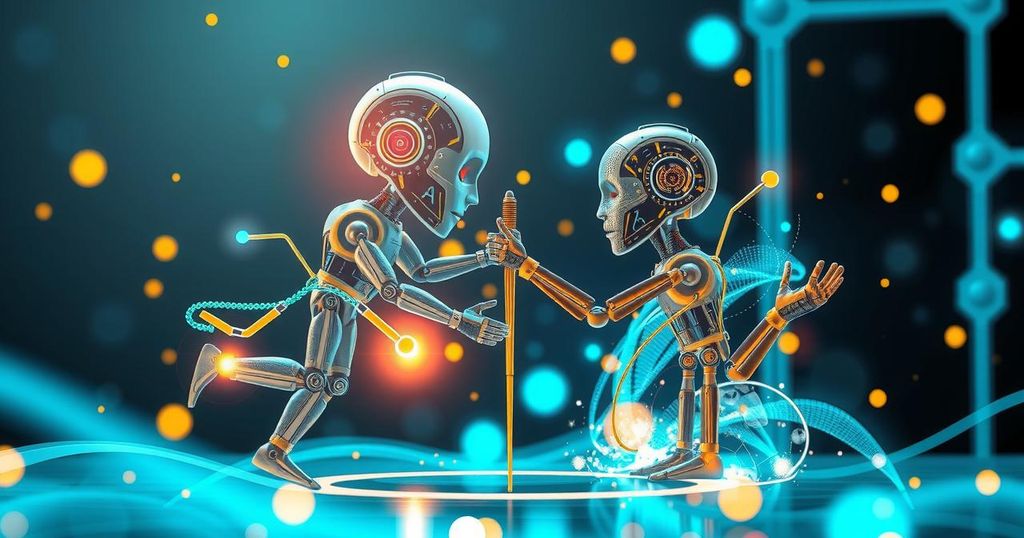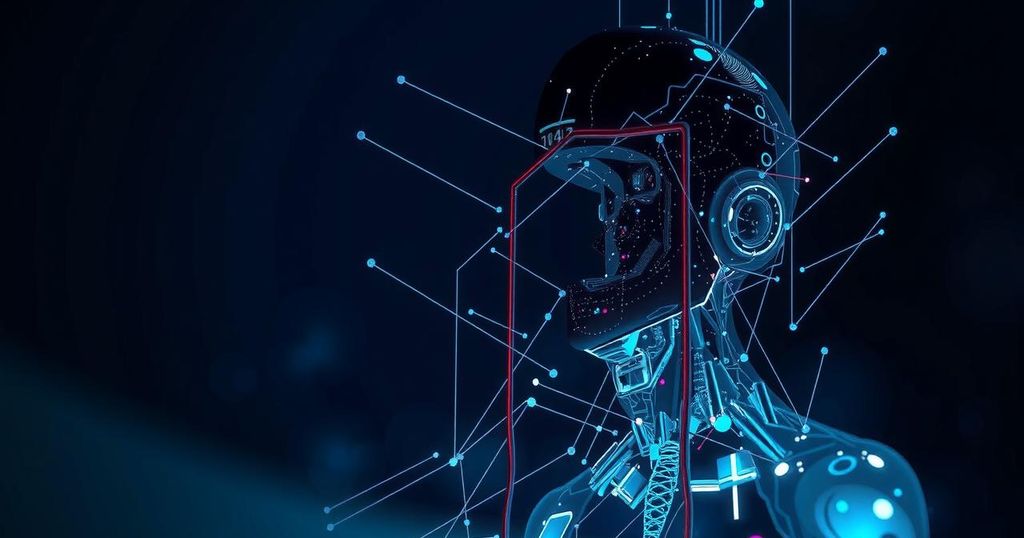Why Humans Maintain the Upper Hand Over Artificial Intelligence
The article explores the ongoing interplay between humans and AI, arguing that while AI offers transformative potential across various industries, it is humans who ultimately shape its capability and application. The key focus is on collaboration—combining human expertise with AI efficiency ensures that neither becomes obsolete, leading to a new horizon of hybrid intelligence where both can thrive together.
The rapid rise of artificial intelligence (AI) is transforming industries, unveiling opportunities yet sparking fears of job displacement. Parichay Mazumdar from CGI believes these fears are overblown, stating, “AI can become a champion of the game, but we as humans have the capacity to rewrite the rules or create a whole new game.” This underscores the significant role humans play in shaping AI’s trajectory.
Recently, I delved into AlphaFold’s breakthrough in solving protein folding, stirring a mix of excitement and hope within me. The joy, however, extended beyond the AI’s capabilities; it sprang from the brilliant human minds that conceived it. This reaffirms my belief that AI alone is ineffectual; it becomes a catalyst for human ingenuity when wielded by informed hands.
The distinction between AI’s capabilities and human intelligence is vital when discussing AI’s achievements. Posing questions like whether AI will replace human experts is misleading. The real promise lies in a future where AI and human intelligence collaborate, elevating one another and fostering a new definition of expertise infused with AI principles.
To explore these ideas, we must engage with how AI processes information compared to human thought. While AI and humans share traits such as pattern recognition and problem-solving, their methods are strikingly different. AI learns from vast data sets, identifying patterns and optimizing outcomes within predetermined frameworks, whereas humans challenge those frameworks and draw from personal experiences to innovate.
Take AlphaFold as an illustration: it can rapidly predict protein structures, a task that traditionally took years. However, it does not provide explanations for these events, nor suggest new structures. Human expertise is still essential to contextualize AlphaFold’s findings in biological terms and apply them in real-world scenarios, especially in fields like medicine, law, finance, and art.
Moreover, the unique capabilities of humans to reconsider challenges, propose new hypotheses, and modify the rules are critical to harnessing AI’s potential. These skills ensure that expertise remains relevant and vital. In medicine, for example, while AI can spot tumors, only trained doctors can contextualize the findings within a patient’s complete history.
As we peer into the future, the rise of AI prompts us to rethink the nature of expertise. The most adept professionals will not shy away from AI but will harness it as an integral part of their skill set. The future will celebrate those who expertly meld human judgment with AI capabilities, creating pathways for innovation that embrace collaboration over competition.
In essence, humans will always hold the edge over AI due to our ability to challenge constraints, interpret results, and reframe problems. Coupling human intuition and creativity with AI’s analytical prowess can pave the way for unprecedented advancements. Moving forward, the key will lie in fostering human-AI collaboration, ensuring that expertise continues to evolve rather than become obsolete. Together, we can carve out a future where we leverage technology to amplify our intelligence and capabilities.
Original Source: www.consultancy.eu




Post Comment